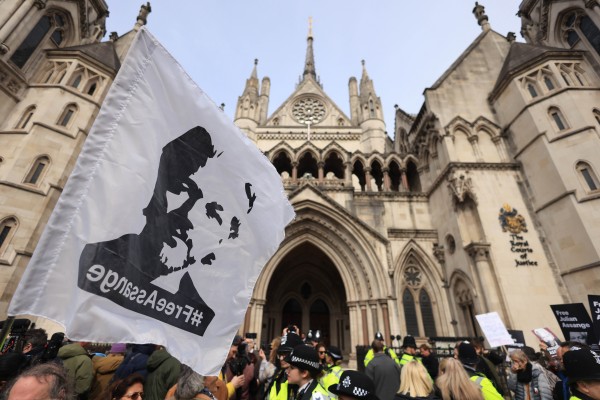“A milestone.” “Tremendous news and a courageous example.” “A substantial advance for press freedom.” “An important achievement.” “Represents significant progress.”
These are just some of the ways that international advocacy groups, including the International Press Institute (IPI), as well as intergovernmental bodies celebrated Jamaica’s pioneering decision to decriminalise defamation in November of last year as part of a complete overhaul of its libel laws.
Antigua and Barbuda now has the chance to follow in Jamaica’s footsteps and repeal its own antiquated, colonial-era criminal-libel law. By doing so, it would earn the same global recognition for strongly protecting freedom of the press and of expression.
During an IPI visit to Antigua and Barbuda last April, Prime Minister Baldwin Spencer Opens internal link in current windowpromised to reform the Libel and Slander Act to remove criminal penalties – by May 3rd of last year. Antigua Labour Party leader Gaston Browne added his support, calling criminal defamation laws “inimical to a free press.” And just days after Jamaica’s successful repeal, Attorney General Justin Simon said that the necessary bill would be introduced in the Antiguan Parliament “within the first quarter of the new year [2014].”
Now that January 2014 has arrived, time is truly of the essence. National elections will soon be held – and while IPI expects both major parties to continue their support for press freedom, we also believe that this is an issue that cannot wait.
In any society, criminal defamation laws, by encouraging self-censorship among media practitioners, have the potential to threaten the free flow of information. This means that citizens may not be getting all the facts they need to make important decisions, whether at the ballot box or in their personal or economic lives.
Besides being dangerous, criminal defamation laws are also redundant. IPI firmly believes that all individuals have a right to dignity and respect – but we think that there are better, fairer ways to redress damage done to reputation than by filing criminal charges. The most important of these is through the use of civil courts, where journalists do not face the stigma of criminal punishment. In addition, they are less vulnerable there to the power of the state, which may not always welcome the necessary scrutiny and occasional criticism that the media bring.
This last point is particularly important: from Angola to Poland to the Philippines, criminal defamation laws are nearly always invoked by powerful figures to defend their interests or reputations. This is problematic because it is precisely these people whose activities should be open to public review.
It is also important to point out that, besides civil litigation, there are also important non-legal measures that have proven successful elsewhere for restoring reputation. These, which should always be considered first, include media apologies and printed corrections. Finally, as IPI has always emphasised, it is critical that media houses apply basic principles of fair, balanced, and fully substantiated reporting; this will help reduce the likelihood that unwarranted damage to reputation will occur in the first place.
No matter where in the world, the simple fact is that criminal defamation laws can be easily abused by those who wish to silence the press. In some countries or under some governments, it may be that such abuse is unlikely – but the only sure-fire way to prevent it is to remove such laws completely.
The repeal of criminal defamation is not just something promoted by advocacy groups such as IPI. Representatives of numerous intergovernmental organisations, including the UN, the Organization of American States (OAS), the Organization for Security and Co-operation in Europe (OSCE), and the African Commission on Human and Peoples’ Rights have all called for their member states to take this important step.
Importantly, the United Kingdom – whose libel law formed the basis of Antigua and Barbuda’s own statute – repealed criminal defamation in 2009. Ireland has also done it, as have Grenada and the Mexican and U.S. federal governments. Trinidad and Tobago and the Dominican Republic are currently considering repeal measures. Antigua and Barbuda should not wait to make its move – reform now would firmly establish it as a press freedom leader.
When talking about criminal defamation, it is important to remember that these laws do not just affect the press. In the age of the Internet and social media, any citizen who expresses an opinion that prosecutors consider to be “libellous” could face trial and up to two years behind bars. It hardly needs mentioning that the freedom to speak your mind about matters of public interest without fear is one of the hallmarks of democratic society.
So all Antiguans and Barbudans should be concerned about criminal defamation – and should urge the Spencer government to keep its promise before the upcoming elections.
The Caribbean has quite a history with criminal defamation: six regional countries have applied such laws against journalists in the past 15 years. That list includes Antigua and Barbuda, where a reporter from a fellow CARICOM state was tried and later deported for criminal defamation. In Cuba last year, a journalist was arrested for defamation after covering the country’s cholera epidemic and then imprisoned under torture-like conditions for nearly seven months.
Antigua and Barbuda is a country with a strong democratic tradition and, we at IPI are proud to say, where the press is generally free to do its job of informing the public. But there is always room for improvement. So we are calling on the government to keep its promise – and thereby match Jamaica’s achievement and protect the rights of all Antiguans.


